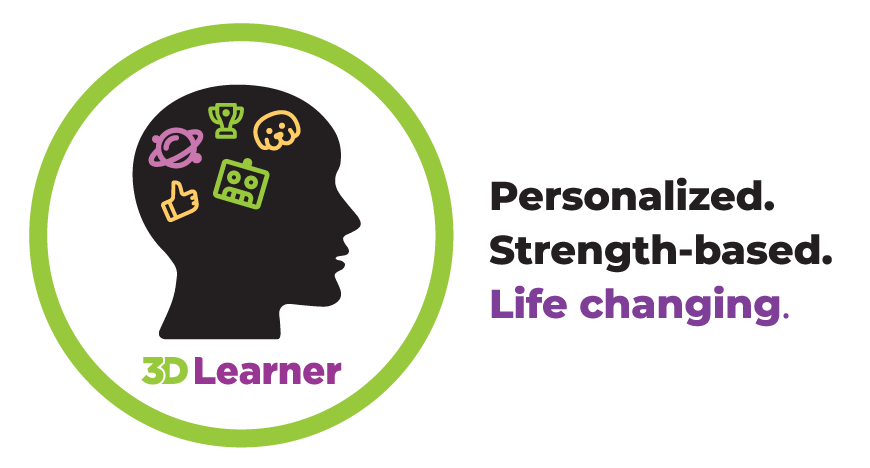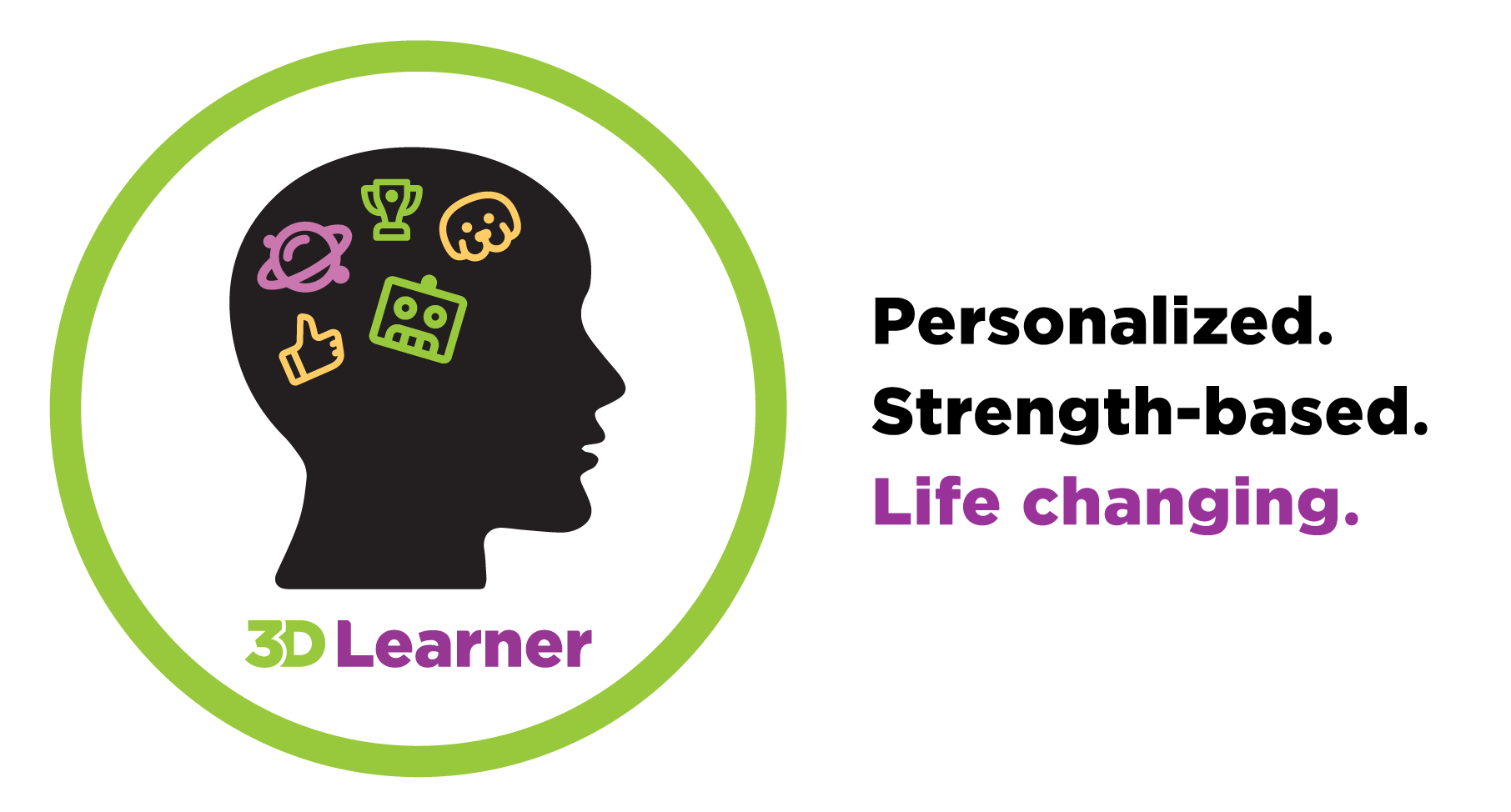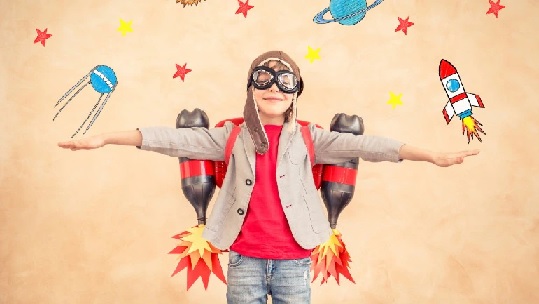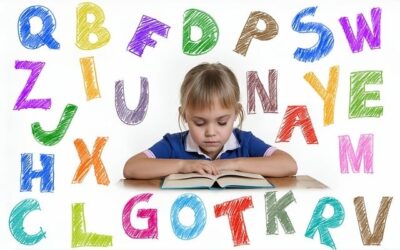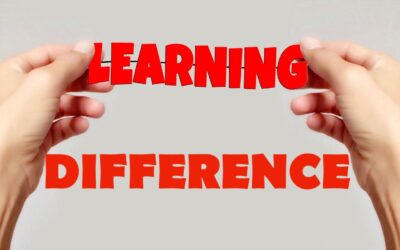A dyslexia treatment that follows the Science of Reading will help Reading Fluency but may not significantly improve reading comprehension.
The challenge is that many students with dyslexia are also a right brain kinesthetic learner, who learns best when he or she sees and experiences information. For the right brain kinesthetic learner with dyslexia, additional strategies and interventions may be necessary to address their specific challenges.
The Science of Reading is an evidence-based approach to teaching reading that emphasizes phonics, phonemic awareness, and other foundational skills. While it is effective for improving reading fluency, it’s important to note that reading comprehension is a multifaceted skill that involves various cognitive processes beyond just decoding words.
Note, if your child does not have dyslexia but learns differently, all the other efforts discussed below to improve visual processing, executive function skills and reading comprehension may be needed.
Note, these students’ profiles often include a combination of 2, 3 or 4 of the following: the student often learns differently, has auditory or visual processing issues, and very often has more than one executive function challenge that may include attention, working memory, processing speed and …
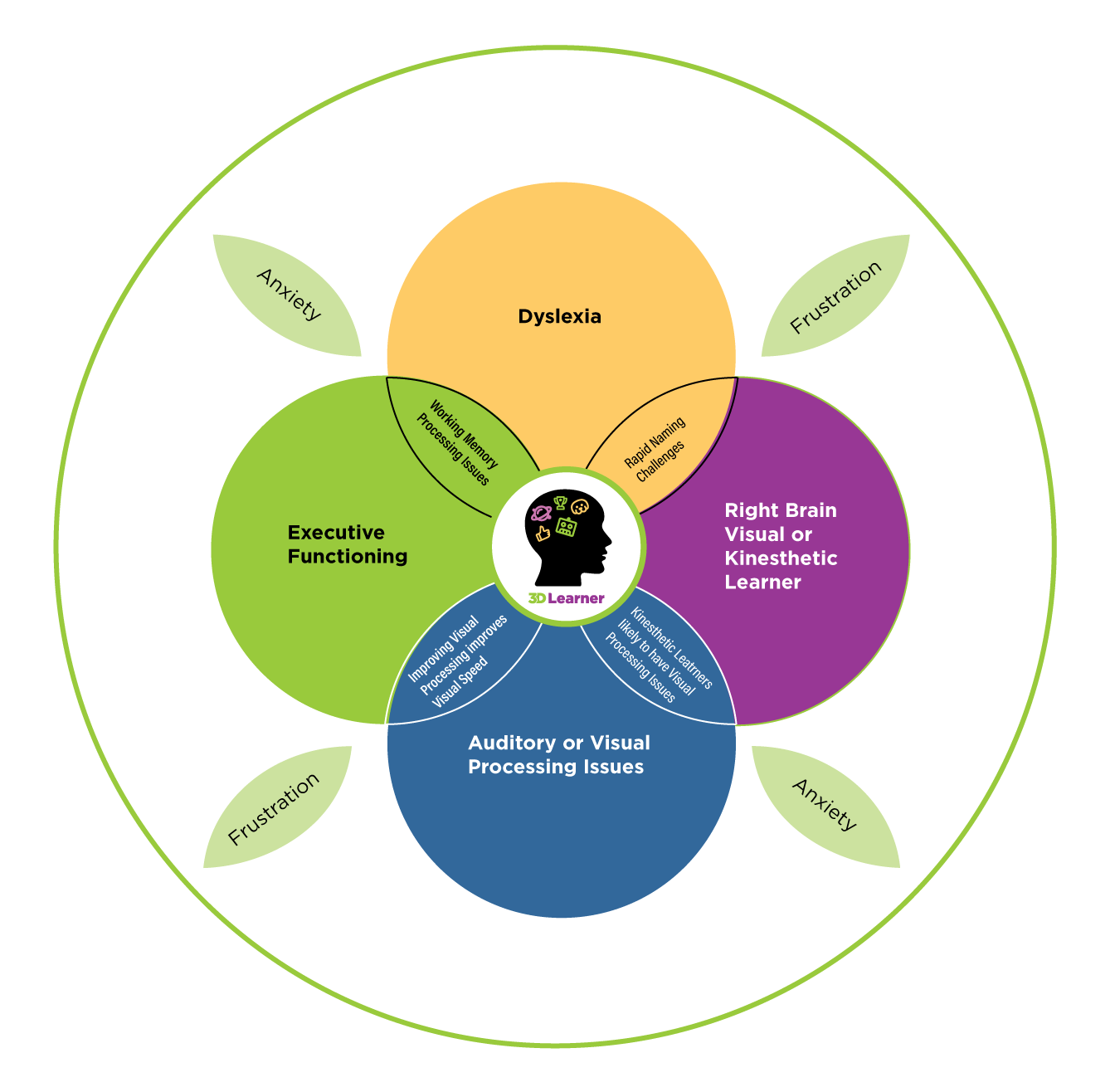
Most students with dyslexia are also a right brain, visual or kinesthetic learner with a visual processing and/or executive function challenge.
Specific problems we see in right brain kinesthetic learners with dyslexia may include:
Problems recognizing words they have seen and not mastered.
Vocabulary instruction: Enhancing word knowledge is crucial for understanding the meaning of texts.
Sight word vocabulary — where the right brain kinesthetic learner does not have a picture for what the words mean.
Visual processing issues frequently occur in this population.
Working memory. A dyslexia treatment and building language skills often requires students to learn and remember rules. This can be difficult for a student with a weak memory.
Processing speed. Many students with dyslexia process information slowly, but it can be improved.
Reading comprehension strategies: Teaching specific strategies, such as visualizing, summarization, questioning, and making connections to their own experiences, can help students with dyslexia improve their comprehension skills. For the right brain kinesthetic learner, the student will often benefit from a hands-on and visual approach that teaches them what the word looks like and creates a visual for what the words and passages mean.
Text structure or sequence awareness: Understanding how different types of texts are structured can aid comprehension. Explicit instruction in recognizing and understanding sequences can be helpful.
Background knowledge development: Building background knowledge using pictures or videos can improve comprehension. Reading a wide range of texts on different topics and relating to their own experiences can contribute to this.
Explicit instruction in comprehension skills: Providing direct instruction in specific comprehension skills, such as identifying main ideas, drawing conclusions, and making predictions, can be beneficial.
It’s important to recognize that dyslexia is a neuro-biological condition that affects the way the brain processes written and spoken language. As such, a comprehensive and individualized approach to intervention is often necessary, taking into account the unique needs and strengths of each student with dyslexia.
To improve reading fluency and reading comprehension for students with dyslexia who are right brain kinesthetic learners, the student often needs:
- A dyslexia treatment to improve reading fluency.
- A more visual kinesthetic approach to word recognition, spelling and vocabulary.
- Auditory and/or visual processing issues identified and addressed.
- Executive function issues identified and addressed.
- Reading comprehension strategies that utilize relevant text and that leverage the student’s ability to learn best when they see and experience information.
If you would like to discuss your situation, you can either call us at 561-361-7495 or click here to find a time on our schedule to discuss “Your Right Brain Kinesthetic Learner with Dyslexia”.
